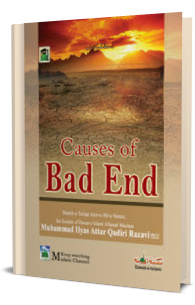
Islam and Women
Recognising Good and Bad
Umm Milad Attariyyah
The benchmark of good, bad, success and failure is mindfulness of Allah (taqwā), and nothing less.
What is ‘good’, and what is ‘bad’? Islamic law stipulates what these are, not ‘rationale’ or the intellectual discernment of man. Good and bad is only that which Allah Almighty and His Messenger have ordained as such.
Allah Almighty declares:
یٰۤاَیُّہَا النَّاسُ اِنَّا خَلَقۡنٰکُمۡ مِّنۡ ذَکَرٍ وَّ اُنۡثٰی وَ جَعَلۡنٰکُمۡ شُعُوۡبًا وَّ قَبَآئِلَ لِتَعَارَفُوۡا ؕ اِنَّ اَکۡرَمَکُمۡ عِنۡدَ اللّٰہِ اَتۡقٰکُمۡ ؕ اِنَّ اللّٰہَ عَلِیۡمٌ خَبِیۡرٌ (۱۳)
“O people! We have indeed created you from one man and one woman, and have made you into various nations and tribes that you may recognise one another. Indeed, the most honourable amongst you, according to Allah, is the one who is most pious amongst you. Indeed, Allah is All-Knowing, All-Aware.”[1]
In modern times, our perception of right and wrong has shifted. Rather than evaluating moral integrity, we often judge based on superficial criteria like attire, family background, education level, fluency in English, or the type of car one drives. We then formulate opinions of someone being good or bad based on the answer. None of these matters can truly distinguish good from bad. The benchmark for this is a person’s conduct. Only Allah and His Messenger have ultimate judgement in this regard.
For this reason, one must look at himself in the mirror of Islamic law. One must take account of his actions in light of both the noble Quran and the sacred hadith. The noble hadith explain how the Messenger of Allah صَلَّى الـلّٰـهُ عَلَيْهِ وَاٰلِهٖ وَسَلَّم detailed the characteristics of both good and bad people. Negative traits have been highlighted so that individuals can recognize and steer clear of their pitfalls. This also allows for others to ascertain these bad attributes in people and thus distance themselves from whoever possesses them.
A person once asked Allah’s Messenger صَلَّى الـلّٰـهُ عَلَيْهِ وَاٰلِهٖ وَسَلَّم regarding the best of people, to which he replied, “He whose life is long and whose actions are good.” When asked who the worst person was, he then said, “He whose life is long and whose deeds are corrupt.”[2]
The final Prophet of Allah صَلَّى الـلّٰـهُ عَلَيْهِ وَاٰلِهٖ وَسَلَّم announced, “The foremost slaves of Allah are those who remind you of Him when you look upon them. His worst slaves are the tale-tellers, those who bring a rift between friends, and those who seek shortcomings in the innocent.”[3]
In another hadith the beloved Prophet صَلَّى الـلّٰـهُ عَلَيْهِ وَاٰلِهٖ وَسَلَّم states:
تَجِدُ مِنْ شَرِّ النَّاسِ يَوْمَ الْقِيَامَةِ عِنْدَاللَّهِ ذَاالْوَجْهَيْنِ الَّذِي يَاْتِي هَؤُلَاءِ بِوَجْهٍ وَيَاْتِي هَؤُلَاءِ بِوَجْهٍ
“You will find that the worst people in the court of Allah on the Day of Judgement will be the double-faced, who appeared to some with one face and others with another face.”[4]
This alludes to those who compliment you when you are present but criticize you when you are not, or those who masquerade as friends while secretly being adversarial. This also means an individual who goes to two friends who have fallen out, and speaks ill of one to the other. In this way, he is an apparent ‘friend’ of everyone.[5]
The Quranic verse and hadith mentioned in this article detail the Islamic criterion of good and bad. Islam considers taqwā to be good, as well as abstinence, listening to the truth, understanding it, believing in it, and performing good deeds. Polar opposite to this, looking for others’ faults, tale-telling, accusations, causing rifts to come between people, and being two-faced are considered attributes only found in an evil character.
















Comments